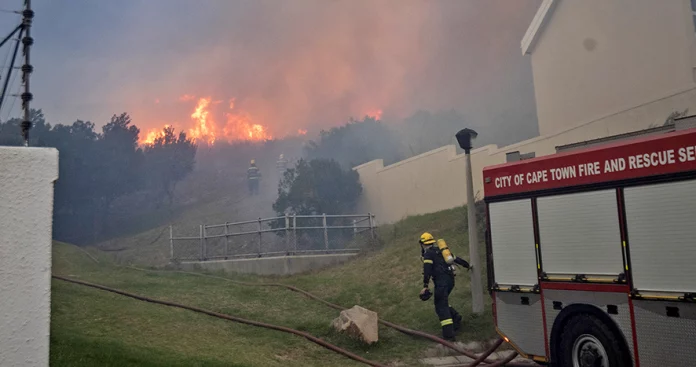The Aon 2021 Weather, Climate and Catastrophe Insight Report shows that $343-billion (about R6.22-trillion) in global weather and catastrophe-related economic losses were reported in 2021, up from $297-billion in 2020.
South Africa experienced three notable disasters in 2021: Cyclone Eloise in January 2021 ($90-million), floods ($75-million), and wildfires in the Western Cape in April 2021 ($100-million).
The report shows only 38% of natural peril losses were covered by insurance, an improvement from last year. This, as the protection gap of economic losses not covered by insurance decreased from 63% to 62% in 2021, despite an increase in overall losses experienced compared to 2020.
Sunday World sat down with Rudolf Britz, the chief actuary at Momentum Insure, to try and understand how climate change affects short-term insurance for businesses.
- How do insurance companies assess risks in areas that are or were prone to extreme weather patterns. For example, KwaZulu-Natal since the floods?
It is important to keep in mind that there are many perils that need to be assessed in order to provide insurance. These include weather and other natural perils, but also the risk of crime and vehicle accident.
In general, vehicle accidents make up the bulk of claims annually. Usually the history of a specific location provides the bulk of insight into a specific area’s risk assessment, but more recently, advanced weather and other models are being used to predict the incidence of events.
This is done to avoid over-exaggerating historical events so that risks can still be insured at reasonable costs.
- Which areas of business insurance (for example supply-chain protection and flood insurance) will require a rethink and why?
Business interruption insurance could need a significant revamp to ensure the protection of large-scale supply chain disruptions. Currently these disruptions are partially excluded or not covered in full, which does not really serve the customer. Flood cover as part of building insurance would increase in price. If reinsurance capacity dries up, the ways this get limited or applied may become interesting.
- Will South Africans living in disaster-prone areas need to pay more for climate change-related cover and claims?
It is important to distinguish between the systemic impacts of climate change, and the specific changes to localised areas. Systemically, it is expected that water will become scarce and hence more social disruptions and the like. These events will affect everyone and hence there could be a general response to all policy holders.
Specific localised events may be different in different regions. Some will experience more dry spells and some more flooding. These will be passed on to customers where the experience differs on a “pay for utilisation” principle.
For more business news from Sunday World, click here.
Follow @SundayWorldZA on Twitter and @sundayworldza on Instagram, or like our Facebook Page, Sunday World, by clicking here for the latest breaking news in South Africa. To Subscribe to Sunday World, click here




